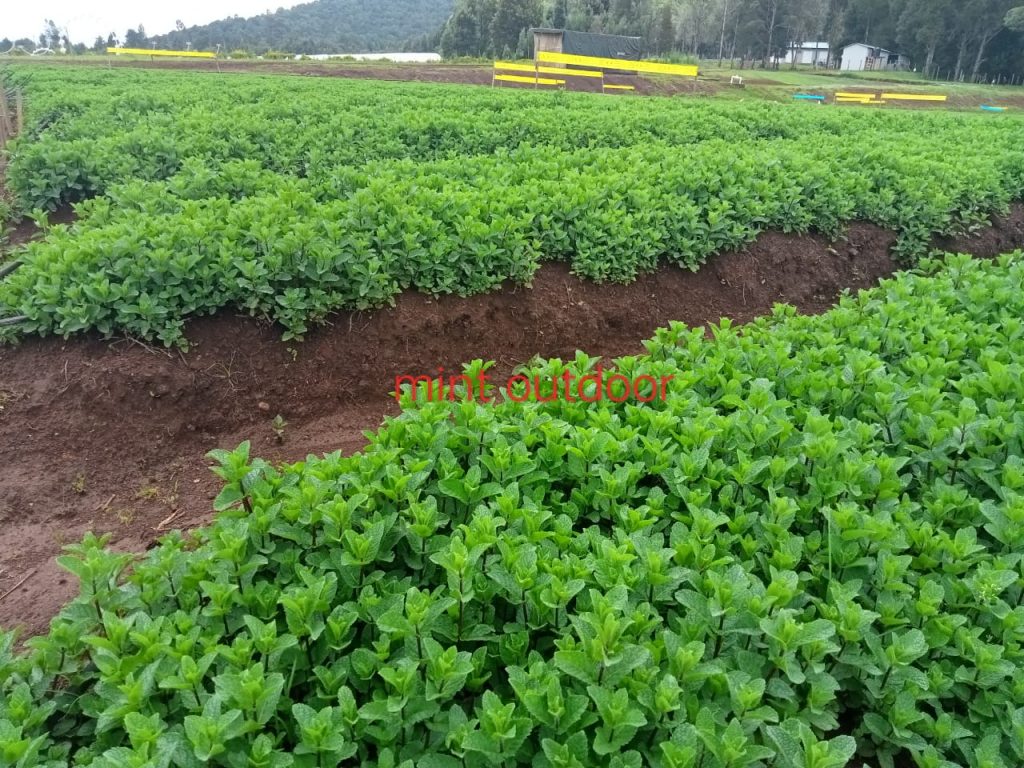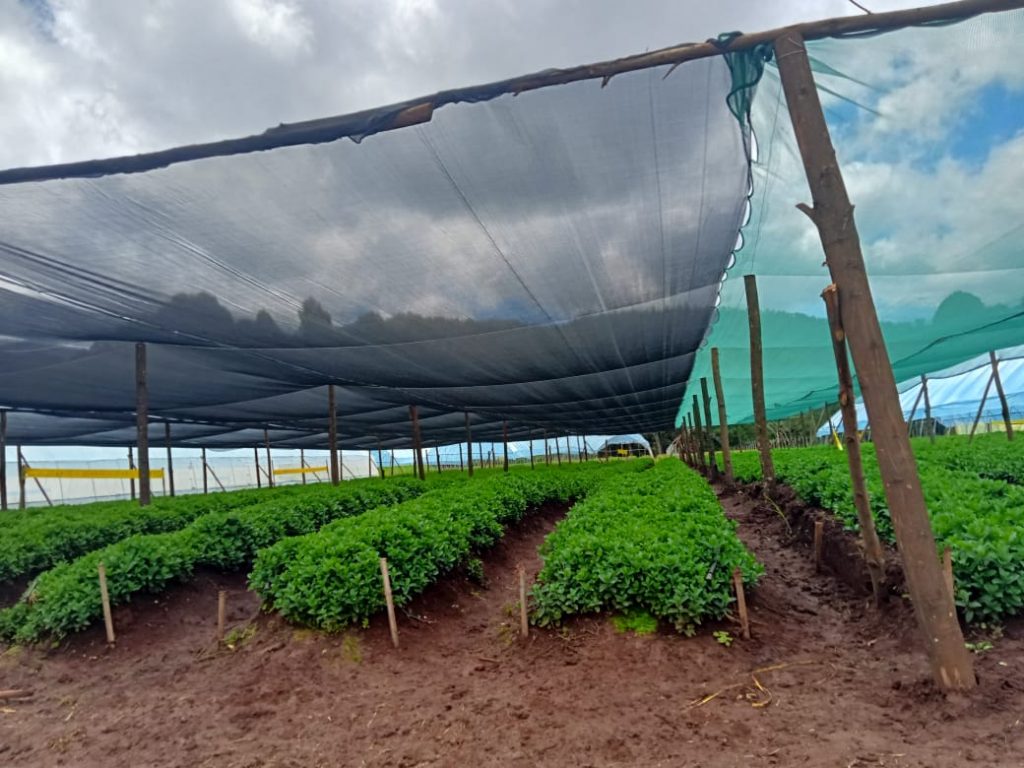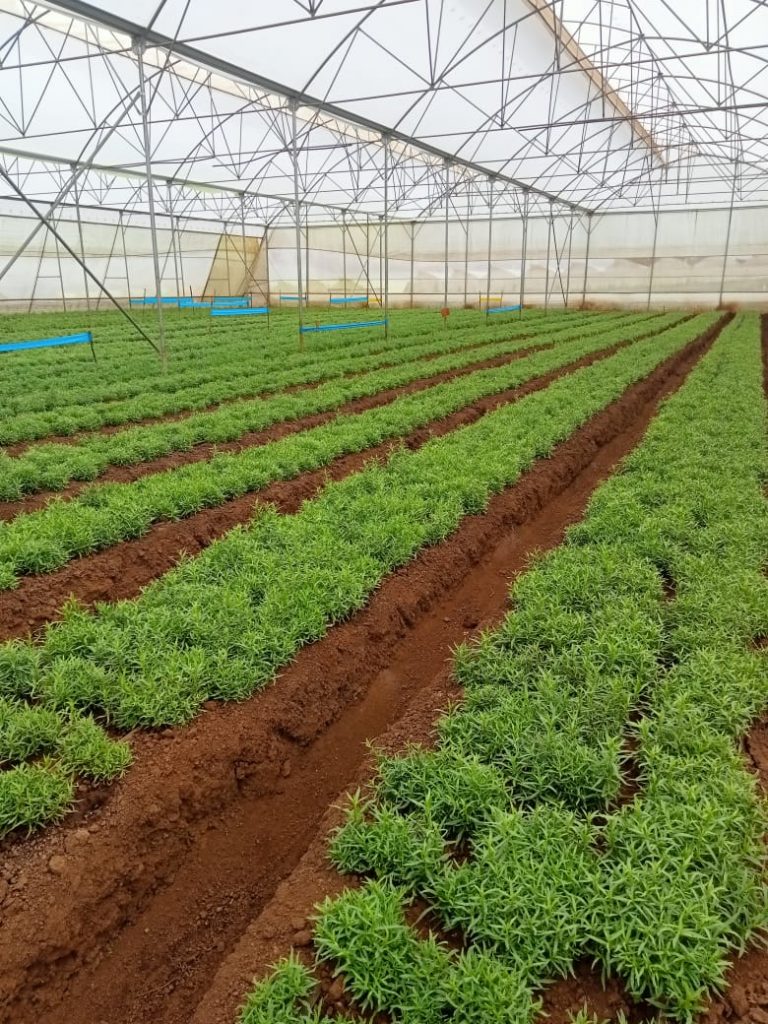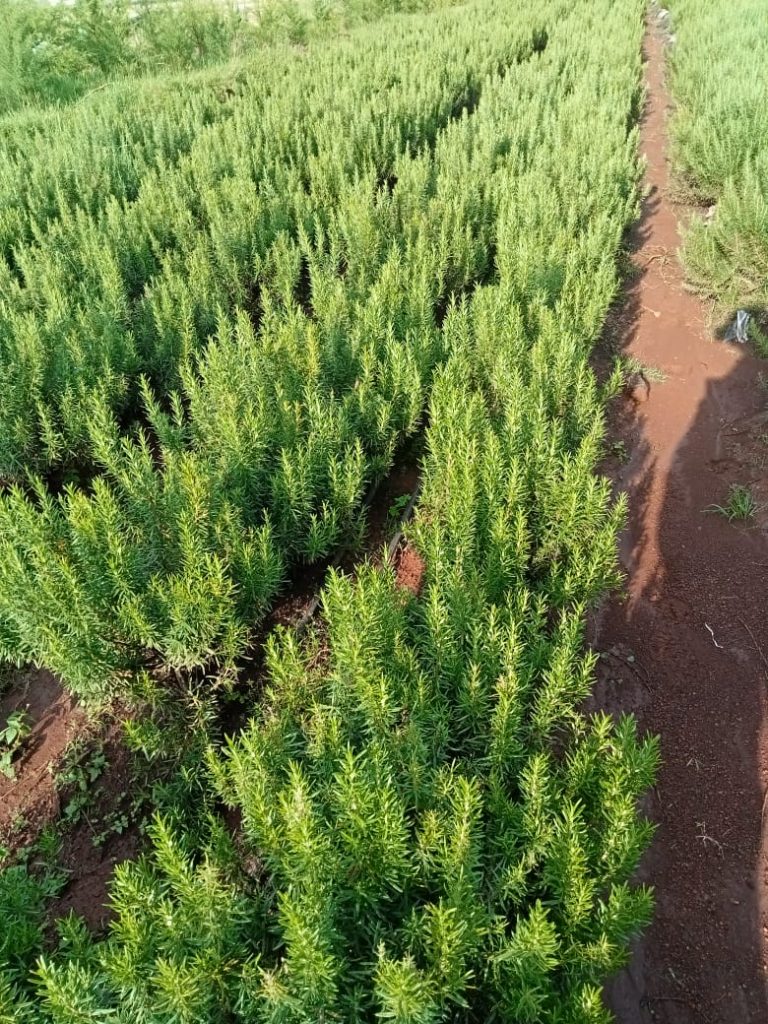by Victor Okeyo

Globally, there is a growing demand for organic and sustainably farmed products, especially in the herb industry. Consumer preferences and stricter export regulations are influencing the shift toward eco-friendly farming in the Kenyan herb industry even as pests and diseases are becoming resistant to synthetic inputs.
“Quarantine pests can cause sanctions, and at the same time, the international market, particularly the EU, allows only select class 3 and biological farm inputs to be used in their imports, this has driven the shift towards sustainable organic-farming practices,” says Elphas Simiyu, production and operation manager at Royal Herbs.


Royal Herbs is an innovative herb producer located in the foothills of the Aberdare in Kipipiri. The company mainly focuses on growing chives, rosemary, and parsley in a sustainable way using biological pest control and soil-health-focused practices.
According to Simiyu, the farm’s location in the Mount Kenya Region gives it an edge in the market, given the variety planted.
“The cool climate and naturally fertile volcanic soil are optimal conditions for growing herbs like chives, mint, and rosemary.” He further highlights the high quality of water in the region.
Soil quality is crucial in herb production. The volcanic and humus-rich soils contribute to the high-quality herbs at Royal Herbs without using chemical inputs.
“Spider mites and thrips are a menace, however, over-reliance on synthetic pesticides could lead to pests developing resistance after some time,” says Simiyu. “However, thrips thrive in warmer or hot areas. In highland areas, thrips do not do well,”


At Royal Herbs, the farm uses biological pest control methods such as pheromone traps, seaweed extracts, and microorganisms to manage pests and maintain soil health.
“For a sustainable ecosystem, it is imperative to eliminate or reduce the use of chemicals; that is why we prefer the use of biological methods among them predatory mites to control pests.”
Simiyu further highlights that the use of harsh chemicals kills beneficial organisms, leaving your soil vulnerable, making it a costly pest management system in the long term.
“Biological insecticides like the recently launched Flipper, by Bayer are of important and plays a game changing role in the industry.”

As an SEZ, Royal Herbs is obliged to adhere to the highest quality standards set in the market.
“We hold certifications from KEPHIS, Global Gap, and other international certification bodies from inspections done to ensure that we comply,” he says.
To minimize waste, the company is initiating dry freezing to store surplus. The farm currently has 17.25 hectares under chives, producing approximately 285 tons per month.
Sustainable practices are opening up new market opportunities, especially as global demand for organic and sustainably produced herbs increases. The Middle East and Southeast Asia are increasing their demand for herbs, further priming the industry for growth.
